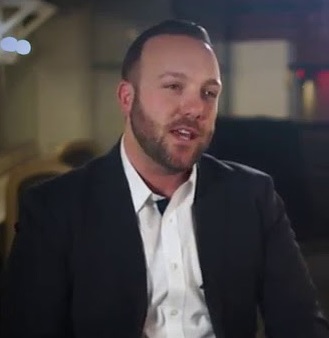
Script vs. Methodology: Orchestrating a Symphony, Not Playing a Record – Why Sales Pros Ditch Scripts
Imagine walking into a concert hall, eager to be captivated by a live orchestra. The lights dim, the conductor raises their baton, and… a pre-recorded melody blasts through the speakers. Disappointed, right?
The same goes for sales. A scripted approach might seem like a safe bet for new salespeople, but for true sales professionals, it’s the equivalent of a canned performance – inauthentic and ultimately ineffective.
So, what’s the difference between a sales script and a sales methodology? Why do top performers ditch the script in favor of a more dynamic approach? Let’s delve into the world of sales conversations and explore the power of a well-defined methodology.
The Pitfalls of the Pre-Written Play: Why Scripts Don’t Work
Sales scripts might seem like a handy tool, offering a seemingly foolproof way to navigate conversations. However, this one-size-fits-all approach crumbles under the scrutiny of real-world encounters. Here’s why:
- Buyers are Individuals, Not Robots: People communicate and interpret information in vastly different ways. A script assumes a homogenous audience, failing to account for the unique personalities, needs, and pain points of each prospect. Imagine trying to have a heartfelt conversation with a close friend using a pre-written script – it simply wouldn’t resonate.
- Scripted Conversations Lack Authenticity: The human connection is paramount in sales. Scripted exchanges sound robotic and inauthentic, hindering trust and rapport building. Wouldn’t you be more receptive to a salesperson who genuinely listens and engages in a natural conversation?
- Stifling Flexibility and Adaptability: Sales conversations are dynamic. Unexpected objections, questions, and buying signals require on-the-fly adjustments. A script, by its very nature, is rigid and doesn’t allow for the necessary flexibility to adapt to the flow of the conversation.
- Limited Opportunity for Discovery: Scripted dialogues prioritize pushing pre-determined points rather than uncovering the prospect’s true needs and challenges. This limits your ability to tailor your pitch and offer solutions that genuinely resonate with the buyer.
- Hinders Active Listening: Focusing on delivering a script hinders your ability to truly listen to the prospect. Active listening allows you to glean valuable insights and tailor your responses to address their specific concerns.
The Symphony of Sales: The Power of a Sales Methodology
While scripts attempt to dictate the entire conversation, a sales methodology provides a framework – a roadmap for navigating the sales process effectively. Here’s what sets methodologies apart:
- Focus on the “Why” Before the “What”: Strong methodologies emphasize understanding the buyer’s needs and challenges before jumping into product features. This ensures a needs-based approach, where your solution becomes the bridge to solving their specific problems.
- Flexibility and Adaptability: Effective methodologies provide a framework, not a script. They equip salespeople with the tools and techniques to tailor their approach based on the unique situation of each prospect.
- A Stage for Active Listening: A well-defined methodology prioritizes active listening as a cornerstone of the sales process. By truly understanding the buyer’s perspective, you can formulate targeted questions and present compelling solutions.
- Building Rapport and Trust: Methodologies highlight the importance of building rapport and trust throughout the sales cycle. Authentic conversations, fostered by active listening and genuine interest, lay the foundation for strong client relationships.
- Continuous Learning and Improvement: Sales methodologies are not static. They encourage ongoing learning and adaptation based on experience and market feedback. This ensures salespeople are equipped with the most up-to-date strategies and techniques.
A Methodology in Action: The Art of Navigation
Think of a sales methodology like a detailed map for a road trip. The map provides a clear route, highlighting key points of interest and potential roadblocks. However, unlike a pre-programmed GPS, it allows for flexibility. You can take scenic detours, adjust your speed, and adapt to unexpected traffic jams. And oh by the way, you can have a normal conversation with your passenger (the prospect) because the roadmap will get you to your destination!
The Final Score: Script vs. Methodology
The choice is clear. Scripts may offer a false sense of security, but they ultimately hinder your ability to connect with buyers on a human level. A well-defined sales methodology, on the other hand, empowers you to navigate the sales process with flexibility and authenticity. It equips you with the tools and framework to tailor your approach to each unique prospect, leading to more meaningful conversations, stronger relationships, and ultimately, more closed deals.
So, ditch the script and embrace the power of a dynamic sales methodology. Become an orchestra conductor, not a record player. By understanding your buyer’s needs, adapting your approach, and fostering genuine connections, you’ll be well on your way to composing a symphony of sales success.

Many people “talk” sales effectiveness, but few have demonstrated the ability to transfer that effectiveness to entire organizations for high impact. For nearly two decades Tony has not only shared his sales strategy to organizations all over the world, but he has consistently created high performing sales cultures that have impacted the bottom line of hundreds of organizations.